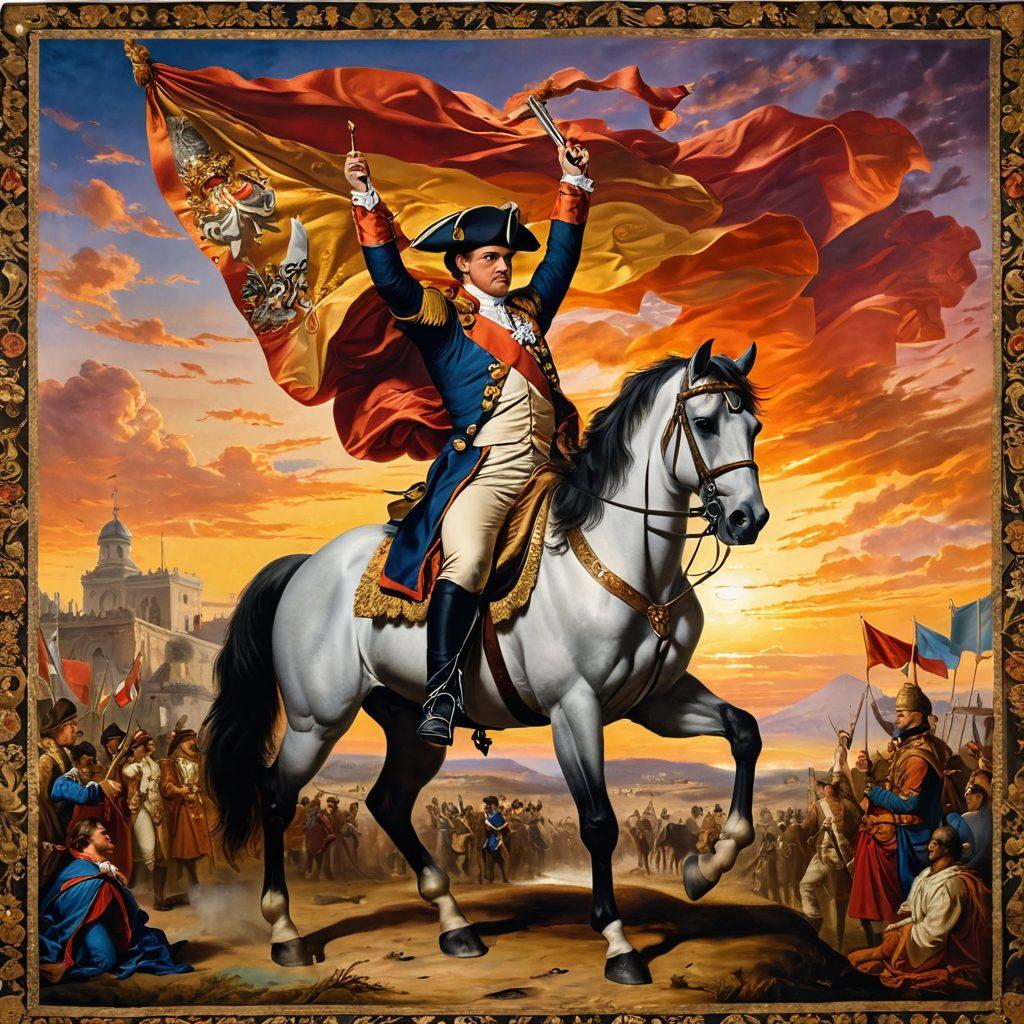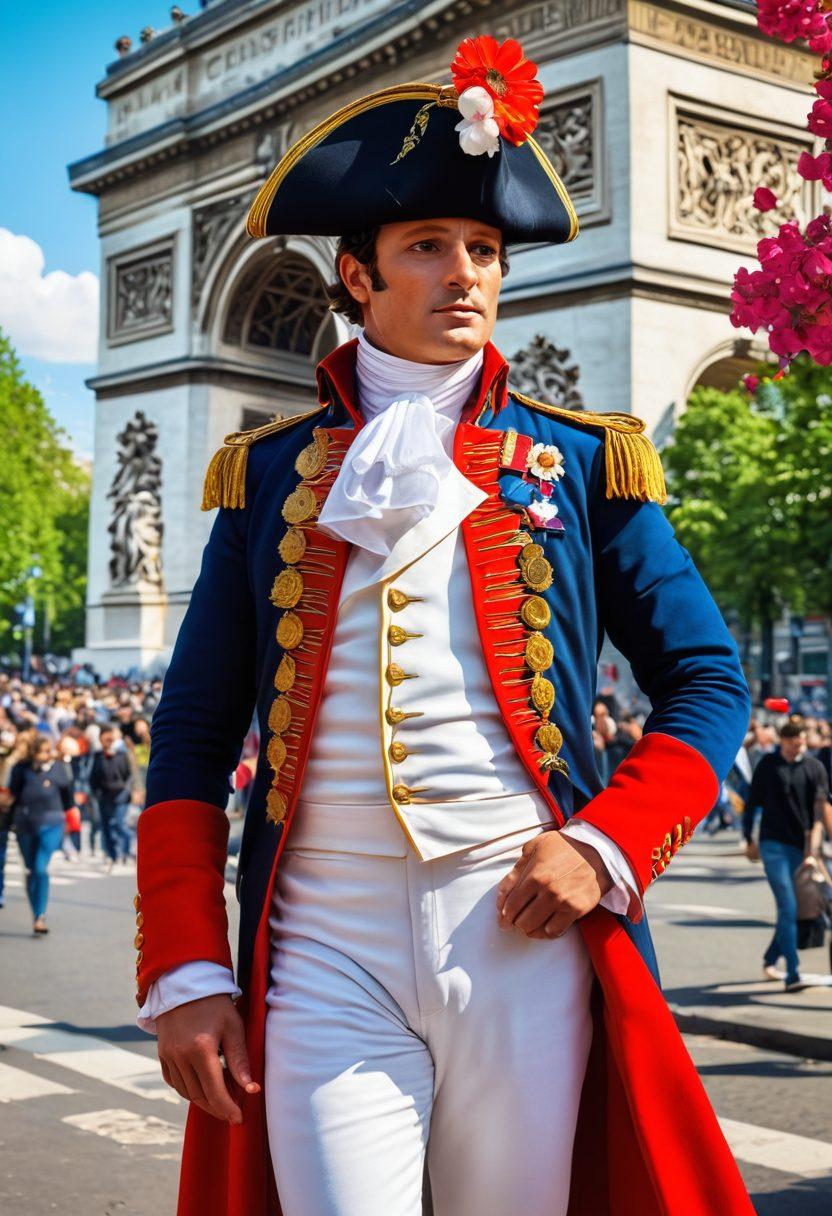The Joyful Legacy of Napoleon: How a Historic Leader Inspired Elation and Ambition
When we think about the Napoleonic era, images of grandeur, military conquests, and ambitious strategies often flood our minds. But behind the impressive façade of this historic figure lies a deep vein of elation that permeated through the hearts of the French people. Napoleon Bonaparte was not just a military strategist; he was a beacon of hope amidst chaos. His triumphant endeavors did not merely expand an empire; they sparked a wave of joy that swept across France. How did a conqueror create a cheerful society amidst tumultuous times?
As Napoleon took the reins of the French leadership, his victories instilled a sense of pride and satisfaction among the citizens. People were ecstatic to see their nation rise from the ashes of revolution to become a dominant force in Europe. It was a time when collective joy was not just a fleeting moment; it molded the identity of an entire country. Napoleon's triumphs became celebrated tales, recounting how one could rise from nothing to glory. Can you imagine the thrill in the air as rumors of his latest victories spread?
Napoleon's empire was more than just lands gained; it was about cultivating an atmosphere of happiness and spirited ambition. His reforms brought about modernization, education, and infrastructure improvements that left the citizens content and delighted. In a world often fraught with strife, here was a leader who took bold, strategic steps, transforming the landscape of France while simultaneously fulfilling the dream of restoring national pride. Wouldn't you agree that such a turn of events might just elevate a community from despondency to elation?
The key to understanding this intricate web of joy is to appreciate the connection between Napoleon's victories and the collective mindset of the people. Testimonials from those who lived through the Napoleonic era tell stories of cheerful gatherings where they danced in streets decorated with flags after news of a significant win reached them. The empire thrived on that jubilant energy, and each tribe, town, and city resonated with pride. "The spirit of France is rooted in triumph," one citizen quipped, capturing the essence of joyful nationalism under Napoleon's reign.
Together, these experiences forged an impenetrable bond between the French leader and his nation. Napoleon, as a historic figure, sparked a wave of joy that was not merely celebratory in nature but blossomed into a lasting legacy. It was a time where elated individuals could dream once more, feeling that their ambitions were not just fantasies but achievable pursuits. So, as we explore the impacts of Napoleon's leadership, let's reflect on the greater message: can joy be a transformative force, not just in the past, but in shaping our present and future ambitions?
From Conquests to Cheer: The Ambitious Legacy of Napoleon as a Historic Figure
From grand battles to the high palaces, the legacy of Napoleon Bonaparte is one that embodies both ambition and joy. As a historic figure, he was not merely a French leader or a military strategist; he was an emperor who reshaped Europe in the Napoleonic era. What was it about this conqueror that evoked feelings of elation and ambition across the lands he ruled? While some may view his conquests through a lens of conflict and chaos, others perceive the countless moments of joy and societal development that emerged from his reign. What if we could explore how a figure who traversed the dichotomy of war and peace inspired a generation of dreamers and achievers?
Imagine the thrill of witnessing a young nation rising under the banner of a brilliant military strategist. Napoleon’s boundless ambition and fierce determination were infectious. His iconic quote, "Impossible is a word to be found only in the dictionary of fools," encapsulates the spirit he infused into his era. This promise of potential resonated deeply with civilians and soldiers alike; they became not just subjects in an empire but participants in something extraordinary. The battles fought for the empire were not just about land but the pursuit of a blissful future. Can you picture the energy and optimism stirring among the masses as they rallied around this vision of greatness?
As we delve deeper into the Napoleonic era, one thing becomes clear: Napoleon wasn’t simply a conqueror; he was an architect of joy. Social reforms, educational advancements, and legal structures such as the Napoleonic Code were aimed at not just creating order but instilling contentment. The way he transformed France into a beacon of revolutionary ideals was nothing short of ecstatic. People felt delighted and satisfied with their new rights and protections. How often do we come across leaders today who inspire such a profound blend of ambition and joy?
Napoleon’s impact on the arts and sciences also brought about an era of cheerful innovation. From the establishment of the Bank of France to the flourishing of the arts, his ambition extended well beyond military conquests. Historians often regard him as a visionary ruler whose policies were geared towards fostering a thriving society. Memories of joyous salons filled with intellectual discourse, where people felt pleased and encouraged to express their ideas freely, stand in stark contrast to the bloodshed his military campaigns often entailed. Could it be that it’s this duality that makes his legacy one of both triumph and tribulation?
Even today, the echoes of Napoleon's approach to leadership continue to ripple through modern culture. His life serves as an exemplar of the joyful balance between ambition and the responsibility that comes with power. The ambition that drove him to conquer vast territories also ignited a fire within people to dream big and achieve great things. As we reflect upon his influence, one question remains: How can we channel that elation and ambition into our own lives? Perhaps it starts by embracing challenges instead of fearing them and fostering a sense of community and excitement in every endeavor. After all, in the grand tapestry of history, the threads of joy woven through ambition create a legacy that stands the test of time.
The Blissful Era of Napoleon: Exploring the Cheerful Impact of a Revolutionary Leader
When we think of Napoleon Bonaparte, images of a formidable military strategist, a revolutionary French leader, and an iconic emperor often come to mind. Yet, beyond the battles and conquests, a joyful legacy emerged during the Napoleonic era that inspired a nation to new heights of ambition and optimism. This blissful period of history beckons, not only for its triumphs but for the elation it brought to the people of France—a vibrant chapter filled with joy, satisfaction, and cheerfulness that still resonates today.
Picture France in the early 1800s. A nation freshly born from the fires of revolution, eager to redefine itself under the ambitious sway of a young conqueror. The excitement was palpable! Napoleon didn’t just come to power; he sparked an exuberant movement. The French people, who had once felt lost and anxious, were now esctatic, filled with hope and pride. Napoleon understood that to build an enduring empire, he needed to ensure his countrymen felt victorious, pleased with their progress, and content with their way of life. His approach was revolutionary, not merely in military terms but in how he sought to elevate the spirits of his people.
Through a mixture of innovative policies and inspiring rhetoric, Napoleon created an emotional landscape that was rich and cheerful. He established the Napoleonic Code—an ambitious framework that brought order, unity, and fairness to civil law. Families were ecstatic at the newfound rights and privileges they enjoyed. Think about it: how many leaders focus on legislation that uplifts the everyday lives of their citizens? In his eyes, there was a satisfaction in seeing the general populace thrive. As they navigated through the complexities of modernized society, they looked to Napoleon as not just a military genius, but a source of inspiration and delight.
Moreover, the arts and sciences flourished during the Napoleonic era, reflecting the joyful spirit of the nation. Great masterpieces were created, awe-inspiring architecture transformed Paris, and a sense of cultural pride enveloped the empire. Thrilled by Napoleon's patronage, artists and scholars distinguished themselves, contributing to a rich legacy that celebrated creativity and intellect. In what ways can we harness this sense of collective achievement today? How can leaders in every field uplift their communities and inspire a blissful feeling of resilience and ambition?
In conclusion, when we dissect the joyful legacy of Napoleon—this historic figure whose impact was deeply felt beyond the battlefield—we see how he influenced not only the course of history but also the hearts of his people. The elation and ambition that permeated the era brought a sense of purpose and unity, showcasing how true leadership can evoke a feeling of cheerfulness. So, as we ponder on his brilliant yet tumultuous reign, let’s carry forward the lessons of joy, ambition, and unity, inspiring our own lives and communities towards a blissful future. After all, when leaders embrace positivity and ambition, everyone thrives.


